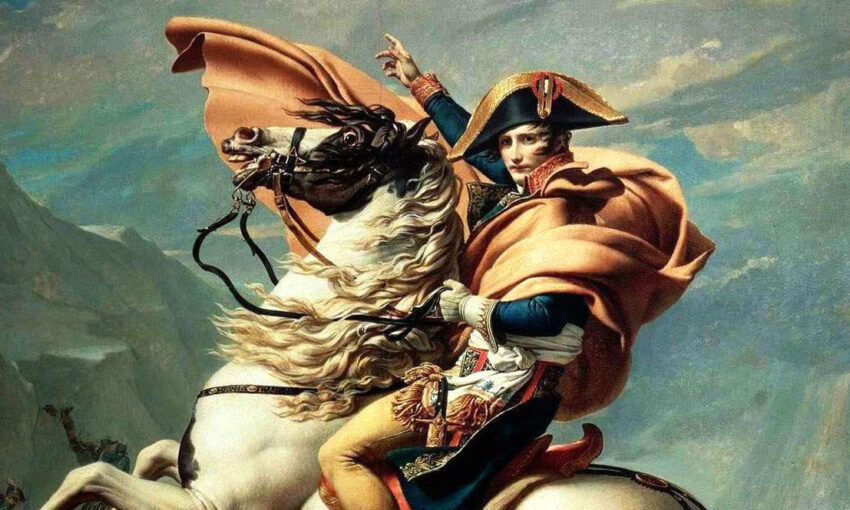There’s a dirty rumor going around that Napoleon named pumpernickel bread after his horse. The myth says that after munching on a piece of pumpernickel, Napoleon spat it onto the ground, and said, “Bah! This bread is only fit for my horse, Nicol!” Or in French, “pain pour Nicol“. The story is certainly romantic, and while Pumpernickel is a great name for a horse, this is simply untrue.
For one, pumpernickel bread has been around much longer than Napoleon, but there’s also the fact that pumpernickel is a German word with an etymology much more colorful than ‘bread for my horse’.
Breaking Down ‘Pumpernickel’
The first part of the word, pumpern-, was a Middle High German word meaning ‘to fart’. It was, in fact, an onomatopoeia. Go ahead, say pumpern. Kind of sounds like someone trying to hold in a fart, doesn’t it? Now picture some mediæval German lords and ladies saying it. Fun, huh? Pumpern survives into modern German as ‘to pound or thump’ 1.
The second part of the word, -nickel, is a German nickname for the Devil or devilish little creatures. This is actually how we get our word for the metal nickel, too.
In the early part of the eighteenth century fresh loads of ore were laid open in Saxony where from times immemorable silver and copper mines had been worked. This new ore was so glittering and full of promise as to cause the greatest excitement, but after innumerable trials and endless labor all that could be obtained from the ore was a worthless metal. In disgust the superstitious miners named the ore kupfer-nickel (copper-nickel) after ‘Old Nick’ and his mischievous gnomes who were charged with plaguing the miners and bewitching the ore. 2
Old Nick and Ol’ Saint Nick
Be aware that Old Nick and Old Saint Nick are not the same person, either. The name Old Nick does not refer to Santa Claus as some might assume but instead refers to an old sailor’s name for the Devil. According to Benjamin Taylor’s Storyology:
One may trace his origin even more easily than that of Davy Jones. We can follow him through Saxon, German, Danish and Norwegian transitions to one of the names of Odin—Hnickar—for even All-father Odin shared the fate of his oriental predecessors, and became demonized. 3
In Norse folklore, water spirits like necken, nixies and nickar represented Odin’s destructive spirit. Thus the seaman’s term Old Nick.
Don’t worry if you confused the two though. The Christian St Nicholas actually took over as patron saint of sailors after the sailors themselves made the same mistake.
There is, however, some confusion in nautical mythology between the original Old Nick and the popular Saint Nicholas. This saint became Christian successor of Neptune, as the protector of seamen… It is certainly one of the curiosities of plutology that the patron saint of children who is still honoured at Christmas as Santa Claus should be the same as the dreaded Old Nick of the seafarers.
The Devil’s Fart
Getting back to pumpernickel bread, if we put both parts of the word together—pumpern- meaning ‘fart’ and -nickel meaning ‘devil’—then pumpernickel literally means ‘devil’s fart’.
Why would anyone call a bread ‘devil’s fart’? Well, like other dark rye breads (which are particularly mild breads for anyone who may be averse to gluten), pumpernickel is high in fiber and can cause some particularly…uh…malodorous pelvic discomfort. You know, farts.
- ‘Pumpern‘ | Dict.cc
- Baldwin, William H | “The story of Nickel. I. How ‘Old Nick’s’ gnomes were outwitted” | Journal of Chemical Education | 1931
- Taylor, Benjamin | Chapter VIII “Davy Jones’s Locker” | Storyology: essays in folk-lore, sea-lore, and plant-lore | 1900

